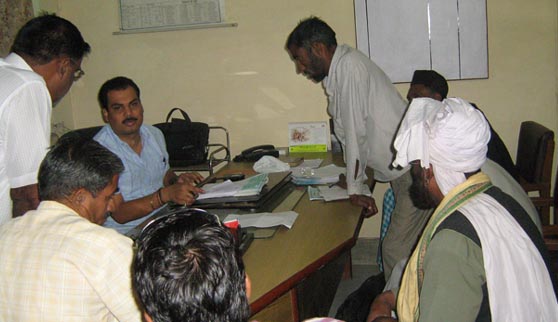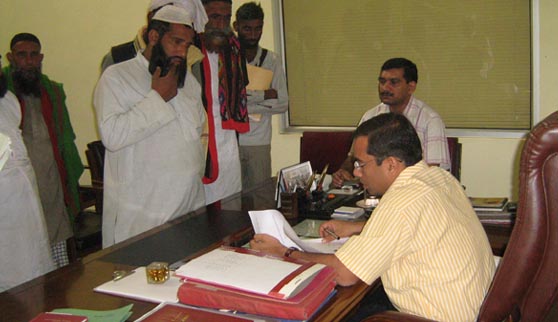
The domicile rights facet of the 'Agency and Forest Rights' project aims to cultivate the Van Gujjars’ sense of belonging to Indian society and support their livelihoods through the obtainment of domicile rights. Domicile rights provide citizens with the opportunity to vote and access to health, education and financial welfare services. The work assists the community to forge links with the government, through which they may lobby for their needs and gain support for their livelihoods.
The work commenced with SOPHIA holding explanatory workshops on the function and processes of the democratic system. Subsequently, the partners lobbied government officials for the community’s opportunity to vote in state and national elections. As a voting pool, and with SOPHIA’s support, the Van Gujjars could pressure government officials to recognise their livelihood and political needs. Voting rights paved the way for the obtainment of Identification cards, an official recognition of the Van Gujjars’ state citizenship. Through ID cards state welfare services may be gained; SOPHIA assists the community to file for welfare claims.


The domicile rights venture has been highly successful. Of the Van Gujjars SOPHIA works with, 5,350 have become registered to vote as of the end of 2014. Moreover, several Van Gujjars have been nominated as representatives of various political parties. Since the obtainment of ID cards for 4,500 Van Gujjars, numerous families have been able to access free health care. Furthermore, 1,870 Van Gujjars have been enrolled in various pension and welfare programs, and 280 families have received ration cards (as of the end of 2014). However, there is still an uphill struggle for the community’s rights to education, which, through literacy, could further empower the Van Gujjars.